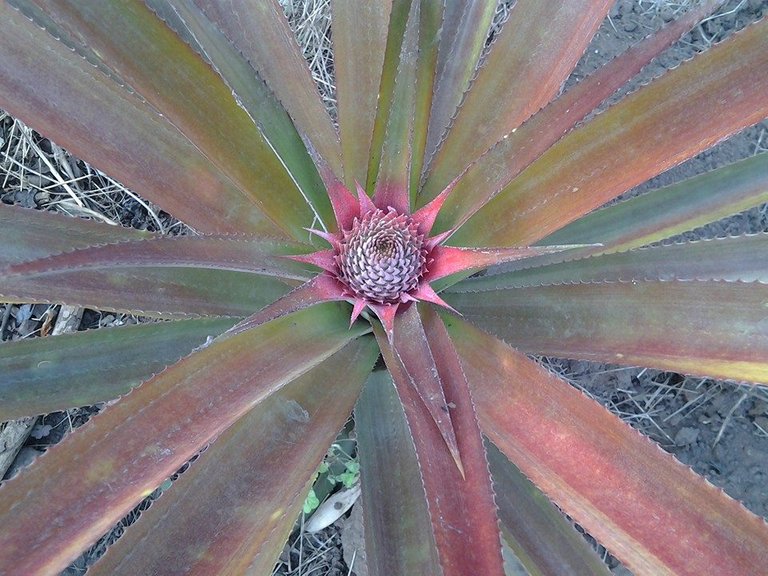.jpg)
Being focused on healthy living, I have a lot of organic waste. Peelings, seeds, and the fibre that's left over after juicing each morning. I am also a keen gardener, although honestly I hardly have time to sleep let alone dedicate hours each day to the outdoors.
That said, since completing a permaculture design course I have become very aware of the importance of nurturing our soil and growing our own food. I work around 9 hours a day, after which I fetch my toddler from school, get home, spend some time giving her and her father my undivided attention, before cooking supper, preparing lunch, bathing the young one and reading her bedtime story. Oh, look at that, it's 9 pm. After bathing myself I have time to get my things together for work the next day, possibly turning out a blog quickly and falling into my bed with a vengeance sometime after 10 pm Where in the world can a (not so) sane human find the time to make compost? Surely that is last on the list of priorities?
Well, the good news is it needn't be. Before I get to the meat of my post, I need to start with the following disclaimer:
The tutorial on making compost I am about to deliver is by no means the proper way, the advisable way, the most effective way or in any way the "correct" way to make compost. It a compost-making hack, perfect if your life feels like a never-ending run around where you're already late every day before you've even started. This composting tutorial should help you make, at least, a heroic attempt at doing the right thing pathetically.
- Save all your scraps
Choose a sealable container and use it to keep all your scraps in. This includes as much raw waste as possible, peels, seeds etc. I especially love to add the dry fibrous stuff that is left after I have made a vegetable juice. Compost does not do well on cooked food, although small amounts can be added to your tub. The best way to keep matters neat is to line your container with newspaper or pieces of cardboard.
- Dig a hole
Set a little time aside once a week to dig a hole in the garden. Dig it as deep and as large as you can manage. This is really the only step that needs to take extra time from you and it needn't require much. The larger you make your hole, the longer you can use it and the better it will be for your compost.
3 At the end of each day...
All you need to do is empty the contents of the container into the hole once a day and cover it lightly with some soil. Add a layer of dry ingredients, like hay, straw or old raked up leaves. Where I live we have a real problem with vervet monkeys. As fun as it sounds, they can wreak havoc and will spread the kitchen waste across the neighbourhood - less than fantastic. They are also rather aggressive so feeding them is absolutely not encouraged! For this reason, I cover every single deposit generously with soil.
Eventually, your hole will be filled and it will be time to find a new area to dig a hole. Choosing the location of your composting is quite important, you want to make sure you are doing it close enough to home to accommodate your lazy days so the temptation to trash the precious waste is easily resisted, without doing it so close that you are forced to endure the delightful smell of decaying fruits and vegetables through your kitchen windows.
Note: You can add the manure of vegetarian animals to your heap as well as any dead carcasses you may come across. We have two cats and dead mice are a frequent joy to be discovered in our sock drawers and laundry baskets.
Composting in this manner will yield extremely slow results and is certainly not for the impatient gardener. I view this, not so much as an exercise in creating compost, but, rather an exercise in not wasting the precious food we could be feeding to the microbes in our soil, to whom we owe great thanks. Whether my family continues to live in the house we are currently renting, or not, I like to believe I will leave the property better than when I received it. I believe that even if a contribution is small, feeding mother earth will benefit all of us.
If you feel like you don't have time to compost, reconsider. It really doesn't need to be done as an art form to perfection. Just keep precious biodegradable food waste out of garbage cans and feed our soils! The outdoor time, even if it is simply walking outside, will lift your spirits each day. The best part of composting in this guerilla manner is the surprises that appear. Pineapples, potatoes, pumpkins, avo trees, mango trees and endless tomatoes are some of the amazing trees and plant species that have magically appeared as a result of waste being composted.
Take a few deep breaths as you walk and feel the earth beneath your feet. It is thanking you.

Welcome to Steem!